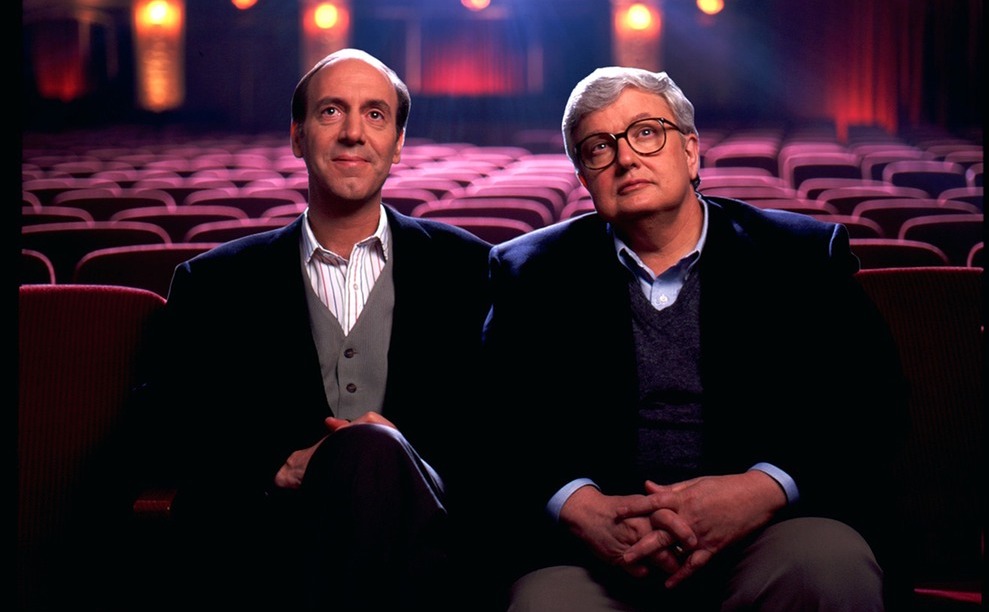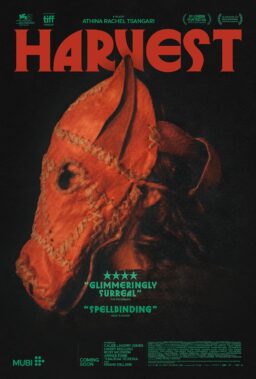The following is a reprint of our contributor Donald Liebenson’s article, originally published on December 10th, 1995 in The Los Angeles Times, which celebrates the twentieth anniversary of “Siskel & Ebert.” It is entitled, “Thumb and Thumber: Siskel and Ebert have their digits on the pulse of the mainstream. Even Hollywood gives them a thumbs up.” We are revisiting the article in light of The Ringer‘s new eight-part podcast series, “Gene and Roger,” hosted by Brian Raftery, which premiered this week. Also be sure to visit The Official Roger Ebert YouTube page and stay tuned for the official Siskel & Ebert website, coming soon!
September marked the start of the 20th TV season for movie reviewers Gene Siskel and Roger Ebert–an impressive achievement in the capricious world of television, especially for a show whose format has remained basically unchanged over two decades: two newspaper guys sitting around talking about the movies and showing film clips.
Of course, these aren’t just any two guys. They are the most recognized, the most watched and the most influential critics in the world, an American pop culture institution.
Though each maintains solo gigs and projects (neither would be interviewed for this article), they are forever inextricably linked in the public consciousness: Siskel and Ebert, Ebert and Siskel, Thumb and Thumber.
Their half-hour, Disney-syndicated show “Siskel & Ebert” is seen in 180 markets spanning 95% of the country (it airs locally on KABC Channel 7 on Sunday nights at 6:30). Only ahandful of current programs–“Meet the Press,” “The Tonight Show,” “ABC’s Wide World of Sports,” “Saturday Night Live” and “60 Minutes” among them–have been on the air longer.
With their opposable thumbs on the pulse of mainstream moviegoers, Siskel and Ebert have empowered the populace to become home-grown critics by employing the up-or-down gesture that has become their signature. So how does the film industry rate them? Thumbs up, mostly.
“They are so incredibly knowledgeable, but they speak a language you can easily understand,” said Michele Maheux, director of communications for the Toronto International Film Festival, which honored them this year.
“The thing I’ve always liked about them is they are just two guys who really like movies,” said John Dahl, whose “Red Rock West” and “The Last Seduction” were championed by Siskel and Ebert. “They review movies from that passion for the art of filmmaking. They have no other agenda. They walk into a theater and say, ‘Go ahead, entertain me.’ That’s why they’re so popular.”
“As far as I know, they are the first people who became household words who did nothing but review movies,” said director Sydney Pollack, whose romantic comedy “Sabrina” opens Friday. “They’ve popularized movie reviewing so that it is brought into everybody’s home. But if you ask me what that means, I couldn’t tell you.”
Actor Wallace Shawn could. So could director John Sayles, not to mention others who distribute or produce independent films that could vastly benefit from exposure on “Siskel & Ebert.”
“My Dinner With Andre” is the film most often cited as the one that demonstrated “Siskel & Ebert’s” power to make so-called art-house films accessible to mainstream audiences.
“Our movie was greeted with great enthusiasm at the New York Film Festival,” Shawn recalled, “but then it opened and nobody came to it. The only reason it stayed open as long as it did was [co-star] Andre Gregory and I went every day to the office of the distributor, who also owned the theater, and begged him to keep it open.”
Siskel and Ebert’s rave review of the film was broadcast the week the film was scheduled to close. “Business increased dramatically,” Shawn said. “The people came and it moved on to other cities and it became a tremendous hit for a low-budget art film. In my mind, if they hadn’t spoken so passionately and eloquently about it and made it seem so interesting, I think it would have been consigned to the scrap heap of history and would have been considered a failed film.”
For Sayles, the director of “The Secret of Roan Inish,” a good or bad review is not nearly as important as the “invaluable” exposure “Siskel & Ebert” gives to independent movies.
“If you’re a small distributor or an independent filmmaker, you can’t buy that air time,” he said. “Here is a national show that gives an independent film the same amount of attention as a major studio release. It is really important for independent films to be taken that seriously and not treated condescendingly.”
“We need more like them in the independent arena,” said Harvey Weinstein, co-founder of Miramax. “They are a shot of adrenaline in a world that has gotten anesthetized.”
Through good reviews and bad, Weinstein said he stays focused on the big picture. “They call them as they see them,” he said. “They’ve hated plenty of my movies. You can’t influence them. Lord knows, I’ve tried. But they use their power exceedingly well. They’ve built trust with their audience, so their audience has become more adventurous.”
“The level of influence they have achieved nationally is quite extraordinary,” echoed Rob Friedman, president of worldwide advertising and publicity for Warner Bros. “They are very good about motivating an audience to see films they feel have merit. If they support a film, they will come back to it when it is released on video. They are enthusiastic about movies and enthusiastic about having people watch them, and that’s very healthy for our business.”
Clearly, Siskel and Ebert matter. But how much? Do they wield too much power? “At the end of the day,” Friedman said, “it is up to the public to choose the movies they want to see regardless of critical response.”
Daphne Feysa, 24, agrees. Standing in line at the Cineplex Odeon Universal City Cinemas, the self-professed “avid movie lover” said, “They’ll talk about art-house films I wouldn’t have fathomed seeing, like ‘Heavenly Creatures,’ and I will give them the benefit of the doubt and go see or rent them. But they could say what they want about ‘Interview With the Vampire’ or ‘Desperado,’ and a pack of wolves couldn’t keep me away from either. There are some actors I will see anything that they do.”
Case in point: Jim Carrey, who can now afford to thumb his nose at the critics who so lambasted his two “Ace Ventura” films. Did he, in fact, deliberately reprise for “When Nature Calls” the talk-through-his-rear shtick that so offended Siskel and Ebert’s sensibilities the first time around?
“It wouldn’t surprise me,” said “Nature’s” director Steve Oedekerk. “That bit wasn’t in the first script.”
Some digs are more obvious, though. In “The Ref,” screenwriter Richard LaGravanese named one of the bad guys Siskel after he was apparently displeased by Siskel’s review of his “The Fisher King.”
Oedekerk, for his part, can laugh off Siskel and Ebert’s thumbs-down reviews of his film, which regardless grossed nearly $38 million in its opening weekend. “They disliked it so much, they cut their thumbs off,” he joked. “They may have helped us to a degree in that the way they criticized it made people want to check it out.
“Siskel and Ebert don’t see comedies with an audience, and I think that is sort of dangerous, but I still respect their opinion. . . . I don’t have any problems with what they say about our movie, except when they say it isn’t funny.”












